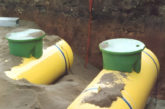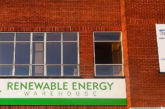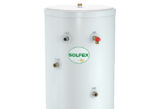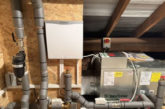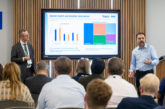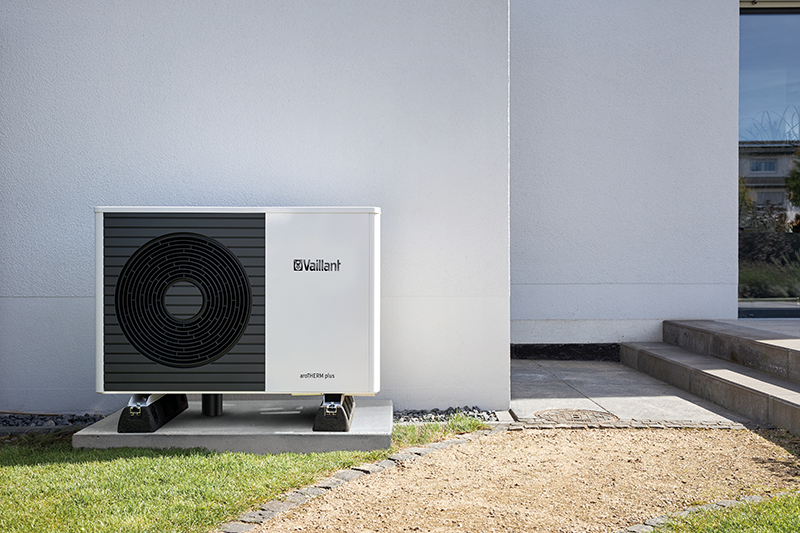
With sales of heat pumps looking to grow considerably, coupled with the recent government response to the Future Homes Standard which outlines plans for low carbon new homes from 2025, it’s clear that low carbon heating is playing a central role in the government’s plans to decarbonise the ways we heat our homes. Mark Wilkins, Technologies and Training Director at Vaillant, discusses how installers can successfully transition into the world of heat pumps, and how manufacturers can play an important role too.
January saw the long-awaited response to the UK Government Future Homes Standard consultation, which set out rigorous targets and timeframes to make all new homes use low carbon heating from 2025. We’re at a clear turning point for the heat pump market, transforming what was once a niche technology into one which looks set to experience significant growth.
Yet, while the opportunity is clear, the shortage of qualified heating installers on the ground to install this technology could prove to be a stumbling block in reaching these targets. Support and investment in installers and infrastructure will be crucial to ensuring widescale uptake of low carbon technologies. For those installers looking to seize the opportunity and take advantage of these new revenue schemes, the need for further upskilling and diversifying is crucial.
Accredited installers
Latest figures suggest there are approximately 2,000 MCS accredited installers actively installing heat pumps. This is compared to the estimated 130,000 Gas Safe Registered engineers currently fitting natural gas boilers.
Many installers already hold the technical know-how and the experience of working on often complex heating systems, which means the progression into low carbon technologies is a clear next step for those looking to broaden their horizons with additional training and qualifications. Heat loss and sizing remain a key part of specifying a heat pump installation. However, mindset and approach are also important elements to consider. While heat pumps require additional time up front to measure and size the room and calculate pipe runs to work out the best suited system, the actual installation work is fairly similar to that of a conventional boiler.
Training opportunities
For those seriously interested in widening their knowledge base, training is key. Manufacturer support has already proved vital in helping many installers on their heat pump journeys, from giving advice on the capabilities of ground and air source systems, to finding the right training courses. Partnering with a manufacturer also provides the opportunity to find out about products in detail and gain access to expert guidance when required.
Vaillant’s online training courses on low carbon heating technologies, including heat pumps, are designed to be easily accessible. Allowing installers to build on their existing product and installation knowledge, the six in-depth modules can be taken in isolation to fill knowledge gaps, but also fit together to cover the journey from beginning to end.
Modular approach
Starting from an introductory course, explaining the workings of a heat pump and the reasons and rationale for decarbonisation, modules then cover specifying and installing a heat pump. There are also a further five modules that expand on this learning to cover more technical topics including natural refrigerants and split systems.
Extensive training on designing and installing our heat-pump systems, and our work with industry bodies such as CIPHE (Chartered Institute of Heating and Plumbing Engineering) and HPA (Heat Pump Association), further ensures that installers can obtain the knowledge and competencies needed to deliver quality installations.
Strong position
Installers able to offer low carbon heating technologies to customers will undoubtedly be in a strong position to maximise every opportunity and revenue stream as the push towards net zero by 2050 continues to gain momentum.
Yet, it is important to remember that when you look at the UK’s current infrastructure, alongside the diversity of the communities and existing housing stock, pinning the future on a single type of fuel or technology is overly restrictive. There is no silver bullet here, and a more complex approach is needed. While retrofit and existing gas grid properties could benefit from the move towards boilers powered by hydrogen and other greener gases – and new build and off-grid properties may be better served by maximising the potential efficiency increases heat pumps offer – this division is no longer so clear cut.
Looking at the heating landscape, it’s clear there is a lot for installers to take into account, but what we do know is that, for those looking to grow and diversify, heat pumps are well worth considering and Vaillant is here to support installers with the move.
www.vaillant.co.uk/for-installers/training/training/online-training/


